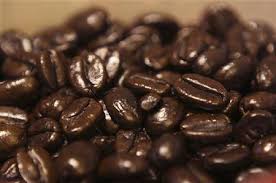Uganda’s coffee growers holding onto their stock until global prices climb back up.

Global prices have continued declining even in the first few weeks of July.
By close of business on Friday, the price of International Coffee Organisation (ICO) composite indicator was at 107.26 US cents of a dollar much lower than it cost in June.
According to ICO in June 2018, the ICO composite indicator decreased by 2.6 per cent to an average of 110.44 US cents/lb, the lowest monthly average since December 2013.
The report said: “Prices for all coffee groups fell in June 2018, though the largest month-on-month decrease occurred for Brazilian Naturals, which declined by 3.7 per cent to 115.10 US cents/lb.”
Low coffee prices, according to industry experts, eat deep into farmers’ pockets especially in countries like Uganda where the economic conditions is getting tough.
Mr Emmanuel Iyamulemye, executive director, Uganda Coffee Development Authority (UCDA) in an interview with Prosper Magazine said unfavourable coffee prices have seen our stocks pile.
“Farmers are also still holding stock in anticipation for higher price,” Mr Iyamulemye says.
Besides this: “Low prices have not attracted exporters to make contracts.”
Losses
Some companies are stuck with big volumes of processed coffee while other companies with contacts are buying coffee at losses to fulfill their contracts.”
“Some companies are stuck with big volumes of processed coffee while other companies with contacts are buying coffee at losses to fulfill their contracts,” Mr Iyamulemye explains.
Experience
Sharing his experience, Mr Joseph Nkandu, the executive director of the National Union of Coffee Agribusiness and Farm Enterprises (NUCAFE), said: “We signed contracts to supply to some of our buyers. Even when the global prices go down, this obligation must be fulfilled.”
Nkandu who believes these are speculations, however, hopes that within the next cycle, prices will go up.
“This is the right time for those who are not in the business to start because much as the prices are down, consumption is on the rise,” he shared.
He gave the example of China which is another big platform for the coffee market besides Europe and the United States of America.
Nucafe is a membership organisation with 200 farmer cooperatives/ associations having 2015,120 farming families with 1,512,210 individual coffee farmers in the five coffee growing regions in Uganda.
Uganda is Africa’s leading coffee exporter with an annual volume of 4.6 million bags valued at $508 million (Shs1.9 trillion).
This volume is expected to hit 20 million bags by 2025 because of the increased production countrywide even in places that never used to grow coffee.
“UCDA has over seen the plantation of more than 500 million seedlings in the last three to four years and they have started to contribute to volumes,” Iyamulemye shared.
Introduction of coffee production to new areas such as northern Uganda, parts of Busoga and greater Bunyoro, he says, will boost volumes.
Global production
Meanwhile, global coffee production in 2017/18 is estimated at 158.56 million bags, 0.3 per cent lower than in 2016/17.
World exports amounted to 9.27 million bags in May 2018, compared with 10.59 million bags in May 2017, driven by a 32.5 per cent decrease for shipments from Brazil, 25.7 per cent for shipments from Honduras, and 55.2 per cent for shipments from Indonesia.
While exports in the first eight months of coffee year 2017/18 (Oct/17 to May/18) have decreased by 0.5 per cent to 79.94 million bags compared to 80.35 million bags for the same period in the last coffee year.
In the 12 months ending May 2018, exports of Arabica totaled 74.72 million bags compared to 74.80 million bags last year; whereas Robusta exports amounted to 44.19 million bags compared to 44.42 million bags.
Kindly follow us on twitter:@AfricanVoice2










